Why Player Choice Matters More than Ever in Modern RPGs
6 December 2024
Role-playing games (RPGs) have always been about escapism, storytelling, and, most importantly, choice. From deciding your character's appearance to shaping the outcome of a game’s sprawling narrative, player choice is the heart and soul of the genre. But as technology evolves and games become more immersive, the emphasis on player choice has skyrocketed. In modern RPGs, developers aren’t just letting us play the story—they’re letting us write it.
So, why is player choice such a big deal today? Why does it matter more now than it did in the RPGs of yesteryears? Buckle up, because we’re diving deep into the power of choice in today’s gaming landscape.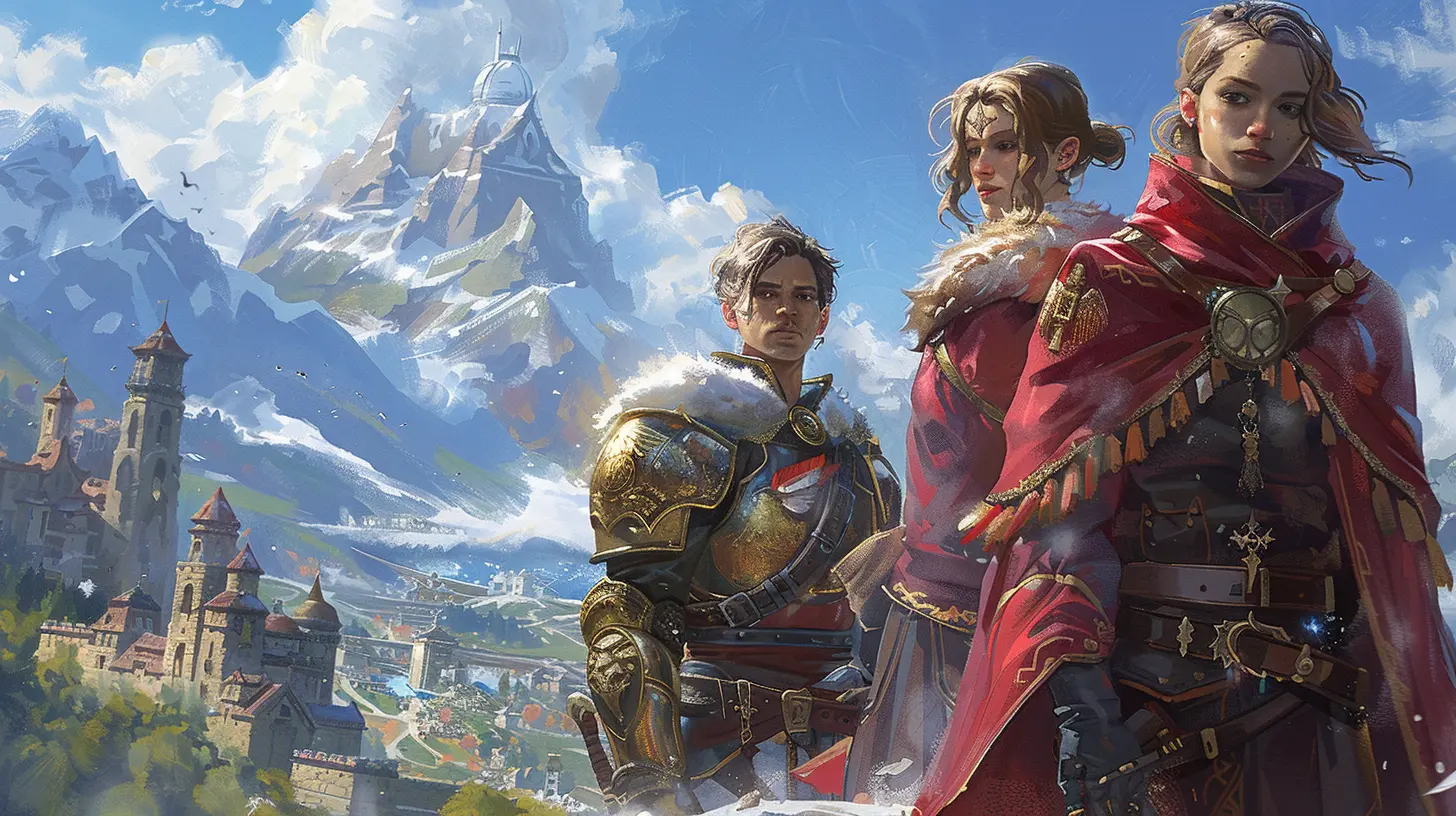
The Evolution of RPGs: From Linear Paths to Open Worlds
To understand why player choice is so essential now, let’s first take a trip down memory lane. Early RPGs, while groundbreaking for their time, often offered limited agency. Titles like Dragon Quest (1986) or Final Fantasy IV (1991) focused more on guiding players through a preset storyline than asking for their input. Sure, they had compelling stories, but as players, we were passive participants rather than active decision-makers.Fast-forward to today, and things look very different. Modern RPGs like The Witcher 3, Mass Effect, and Elden Ring have traded those linear experiences for something much more dynamic: open worlds, branching narratives, and moral dilemmas. These games don’t just tell a story—they let you shape it. Whether it's choosing who to save in a chaotic moment or deciding which faction to align with, the power is in your hands.
Why is this shift happening? Technology plays a big part. Modern game engines are more advanced, enabling developers to incorporate multiple story arcs, factions, and alternate endings. But it’s more than just software—it’s about player expectations. Gamers today crave immersion, and nothing screams “immersive” louder than the ability to influence the story. 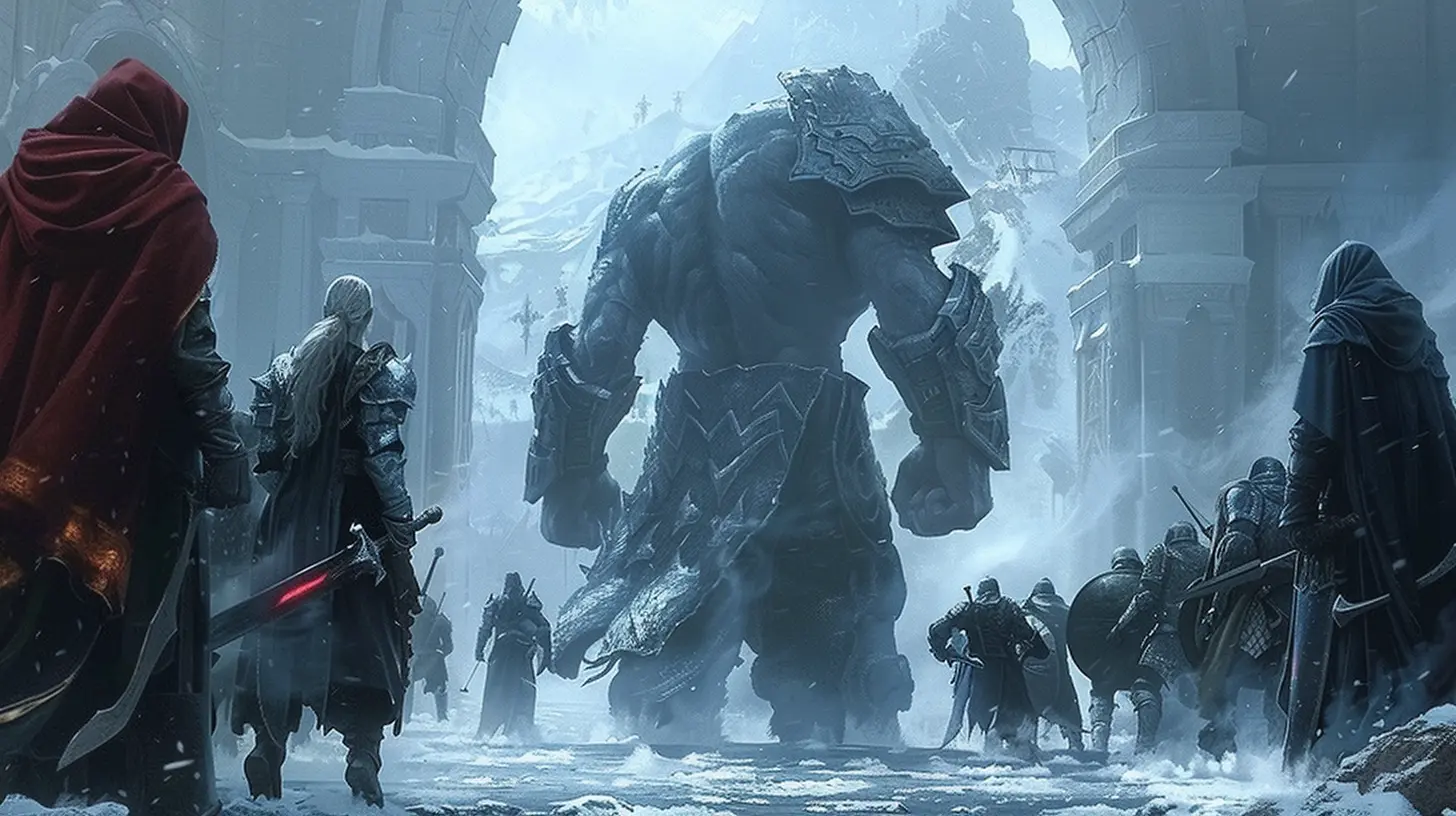
Choice Isn’t Just About the Story—It’s About Ownership
Here’s the thing: player choice isn’t just about seeing how many different endings a game can offer. Sure, that’s cool, but the real magic lies in the sense of ownership it gives us. When a game allows you to make decisions—big or small—it suddenly becomes your story. It’s no longer just Geralt of Rivia’s journey or Commander Shepard’s mission. It’s yours.Think about games like Skyrim. You don’t just follow the Dragonborn’s path; you decide what kind of Dragonborn you want to be. Are you a heroic savior who helps every tragic NPC you meet? Or are you a morally ambiguous thief who bends the world to your will? Those decisions give you a sense of agency, and that’s what keeps players invested for hundreds of hours.
The same goes for games with moral or ethical choices. Take The Walking Dead by Telltale Games, for example. Deciding who lives or dies, or how to protect your group, doesn’t just alter the narrative—it makes you question yourself. Did you make the right call? Could you have done something differently? These aren’t just in-game decisions; they’re emotional experiences. And that’s what makes modern RPGs stand out.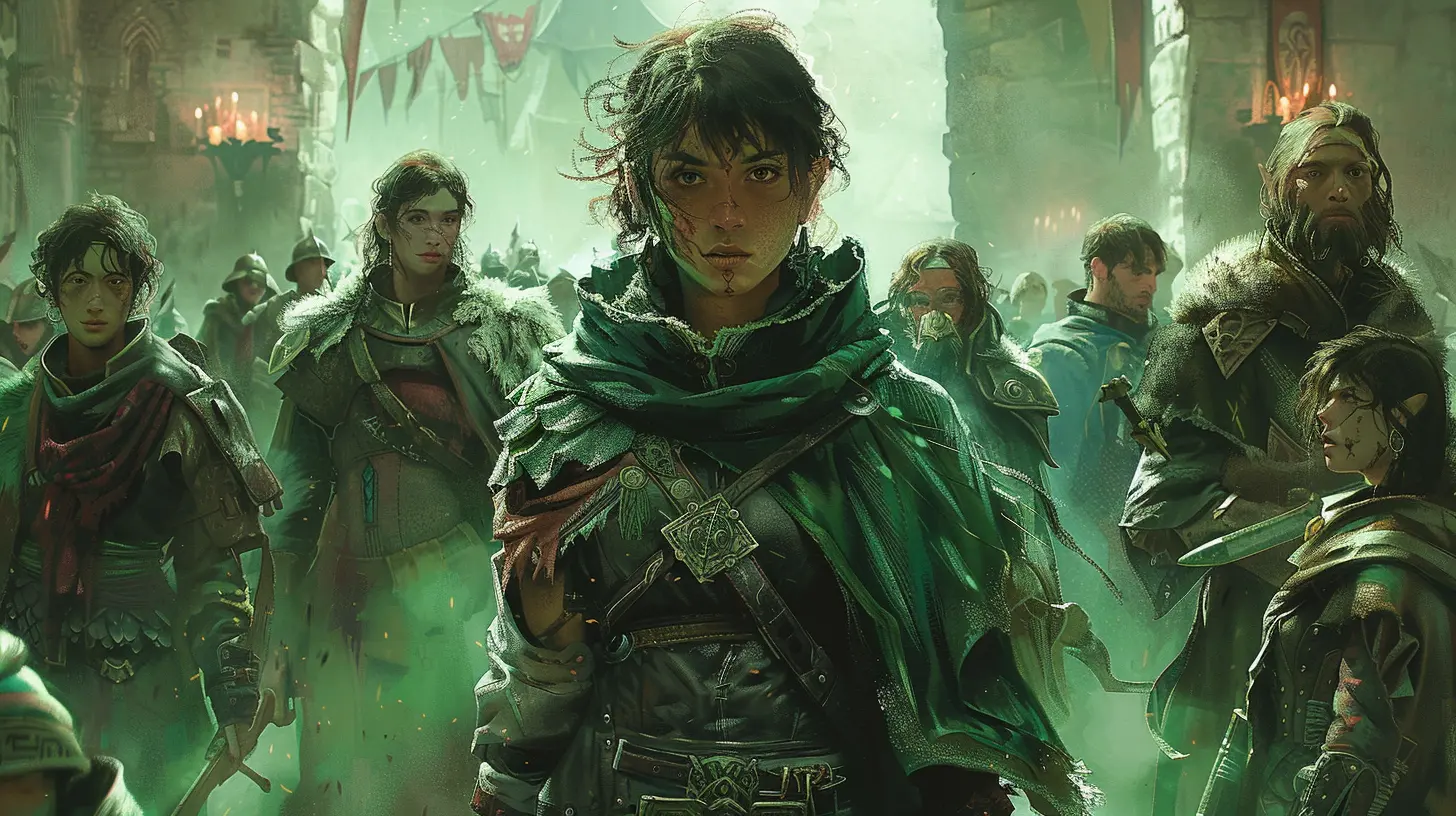
Emotional Depth: The Power of Consequences
Player choice doesn’t exist in a vacuum. What makes it truly impactful is the consequences. A decision isn’t meaningful unless there’s something at stake, right? Modern RPGs have mastered this concept by tying choices to real, tangible outcomes.Take Mass Effect 2. Every dialogue option and mission decision can influence the survival of your crew during the final mission. It creates tension, excitement, and an emotional connection to the characters. When a crew member dies because of your choices, it hurts—and that’s the point. That emotional depth is what keeps players thinking about these games long after the credits roll.
Consequences also create replayability. Titles like Detroit: Become Human or Disco Elysium encourage players to go back and try a completely different approach. How would the story change if you chose the other dialogue option? What happens if you side with a different faction? These "what if" scenarios are part of what makes player choice in modern RPGs so addicting.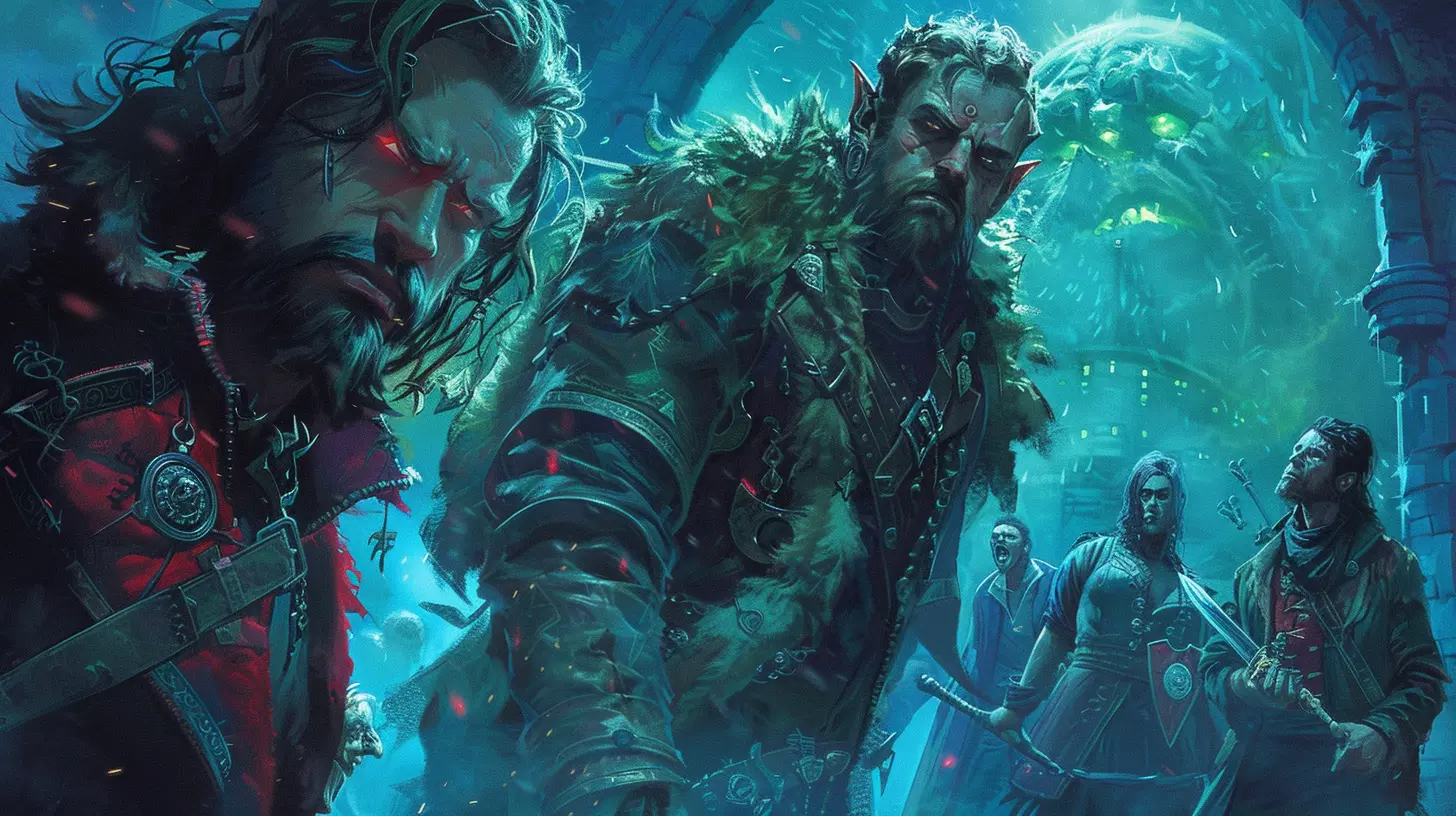
The Rise of Emergent Gameplay: Game Design Meets Freedom
One of the coolest trends in modern RPGs is "emergent gameplay," where player choice doesn’t just impact the narrative but also the gameplay itself. This freedom allows players to tackle challenges in creative, non-linear ways. It’s like choosing your own adventure, but with swords, spells, and a ton of chaos.Take Divinity: Original Sin 2. The game gives you ridiculous amounts of freedom when it comes to solving problems. Can’t defeat an enemy outright? Teleport them off a cliff. Want to avoid a combat scenario entirely? Use your silver tongue to talk your way out. The game doesn’t hold your hand; it acknowledges your intelligence as a player and rewards you for thinking outside the box.
Sandbox experiences like these empower players in ways traditional RPGs never could. Rather than forcing you down a predetermined path, emergent gameplay says, “Here’s the world—do what you will with it.” And that’s incredibly liberating.
Why Player Choice Reflects Real Life
It’s no coincidence that player choice is becoming more central to RPGs at a time when individuality and self-expression are more valued than ever. Games are a mirror of the real world, and in today’s society, we’re all about personalization. From customizing your Starbucks order to curating your social media feeds, everyone wants things their way. Why should video games be any different?Modern gamers want to connect with the virtual worlds they inhabit. They want to feel like their choices have weight, just like they do in real life. This is why decision-making in games feels so satisfying—it’s a safe environment where we can explore the consequences of our actions without real-world repercussions. It allows us to practice empathy, test our morals, and even discover a bit about ourselves.
And let’s be honest: player choice is empowering. In a world where we don’t always have control over what happens, video games give us a place where our decisions actually matter. That’s a pretty big deal.
The Challenges of Designing for Choice
Of course, all this freedom doesn’t come without its challenges. Designing for player choice is no easy task. Think about the sheer complexity of creating branching storylines that all feel equally meaningful. It’s a balancing act between giving players freedom and maintaining the integrity of the narrative.There’s also the risk of overwhelming players. Too many choices can lead to “decision paralysis,” where players feel stuck because they don’t know which path to take. To combat this, developers need to present options that are distinct without being overwhelming. It’s all about finding that sweet spot.
Finally, let’s talk about expectations. With player choice becoming such a hallmark of modern RPGs, players can be unforgiving if a game doesn't deliver on its promises. Just look at the backlash against Cyberpunk 2077 at launch. For better or worse, gamers have high standards for choice-driven experiences—and they’re not afraid to voice their disappointment when those standards aren’t met.
The Future of Player Choice in RPGs
So, where do we go from here? If the last decade of gaming is any indication, player choice in RPGs is only going to get bigger and better. Imagine what advancements in artificial intelligence or procedural storytelling could bring to the table. We’re already seeing glimpses of this with games like No Man’s Sky, where the universe feels alive and reactive.Virtual reality (VR) could also take player choice to a whole new level. Imagine being fully immersed in an RPG where you’re not just clicking dialogue options but physically interacting with the world around you. The possibilities are endless, and the future is looking bright.
Final Thoughts
At the end of the day, player choice is more than just a game mechanic—it’s what makes modern RPGs so special. It puts the power in your hands, allowing you to shape your own adventure and experience a story that’s uniquely yours. Whether it’s deciding the fate of a fictional kingdom or simply choosing what kind of hero you want to be, the choices we make in games matter because they make us feel something. And isn’t that what gaming is all about?So, the next time you’re faced with a tough decision in an RPG, take a moment to appreciate the thought and effort that went into making that choice possible. After all, it’s a privilege to have the power to define your own story.
all images in this post were generated using AI tools
Category:
Role Playing GamesAuthor:

Madeleine McCaffrey
Discussion
rate this article
13 comments
Ethan McQuillen
Empowering choices enhance player investment.
February 1, 2025 at 3:36 PM

Madeleine McCaffrey
Absolutely! Empowering choices not only deepen player engagement but also foster a stronger emotional connection to the game's narrative and characters.
Rosalyn McKee
Great article! Player choice truly does shape our gaming experiences, allowing for unique narratives and deeper immersion. It's fascinating to see how developers are prioritizing these choices to enhance engagement. Looking forward to seeing how future RPGs continue to evolve in this area!
January 27, 2025 at 6:05 PM

Madeleine McCaffrey
Thank you! I completely agree—player choice is essential for crafting unique narratives and enhancing immersion in RPGs. Excited to see how developers continue to innovate in this space!
Elin Clark
Player choice: because who doesn't want to decide between saving the world or pizza?
January 23, 2025 at 3:37 AM

Madeleine McCaffrey
Absolutely! Player choice adds depth and personalization, making every decision—whether epic or trivial—more engaging and meaningful.
Mason McGowan
Player choice transforms narrative, making each journey uniquely unforgettable in modern RPGs.
January 19, 2025 at 5:55 PM

Madeleine McCaffrey
Absolutely! Player choice enriches the narrative experience, allowing each player's journey to be personal and memorable, which is essential in modern RPGs.
Anika Estes
Player choice? Absolutely essential! Without it, RPGs are just glorified linear stories. Give me freedom or give me boredom!
January 16, 2025 at 3:39 AM

Madeleine McCaffrey
I completely agree! Player choice is crucial in making RPGs immersive and engaging, as it empowers players to shape their own narratives and experiences.
Drake McNeely
Player choice is the heartbeat of modern RPGs, empowering us to shape our destinies and immerse ourselves in rich narratives. As we embrace our unique paths, we redefine what gaming truly means. Let the adventure begin!
January 12, 2025 at 4:34 PM

Madeleine McCaffrey
Absolutely! Player choice enriches storytelling and fosters deeper engagement, making each player's journey uniquely meaningful. Let's dive into these transformative experiences!
Thor McTier
Great article! Player choice truly enriches the RPG experience, making every adventure feel uniquely personal and impactful!
January 6, 2025 at 5:03 PM

Madeleine McCaffrey
Thank you! I completely agree—player choice is essential for creating immersive and memorable RPG experiences!
Clara Ellison
Player choice shapes individual narratives, fostering deeper emotional connections and enhancing immersion, ultimately redefining the role of agency in modern RPGs.
January 3, 2025 at 4:17 PM

Madeleine McCaffrey
Absolutely! Player choice is vital, as it personalizes experiences and strengthens emotional ties, making RPGs more immersive and impactful than ever.
Selah McNair
Great read! Player choice truly enriches RPGs, deepening immersion and personal connection to stories.
December 29, 2024 at 4:00 PM

Madeleine McCaffrey
Thank you! I'm glad you enjoyed it. Player choice really does enhance our connection to the game's narrative.
Damien Franklin
Player choice shapes narratives and fosters deeper engagement, making every decision impactful—essential for modern RPGs that strive for immersive experiences.
December 21, 2024 at 5:23 AM

Madeleine McCaffrey
Absolutely! Player choice not only enhances immersion but also tailors unique experiences, making each decision feel significant and personal. This is key for the evolution of modern RPGs.
Fiona Burton
Player choice enriches storytelling, fosters immersion, and empowers gamers, making each journey uniquely personal and memorable.
December 15, 2024 at 4:55 PM

Madeleine McCaffrey
Absolutely! Player choice enhances storytelling and immersion, allowing each player's journey to feel distinct and meaningful.
Teagan McNeely
Player choice is the lifeblood of modern RPGs. It empowers gamers, fosters immersion, and creates unforgettable narratives. Without it, we’re left with hollow, cookie-cutter experiences. Period.
December 12, 2024 at 5:27 AM

Madeleine McCaffrey
Absolutely! Player choice is essential for deep immersion and unique storytelling, elevating the RPG experience beyond mere gameplay into something truly memorable.
Micah Heath
I'm fascinated by how player choice shapes narratives—could it redefine our connection to characters and worlds?
December 6, 2024 at 4:13 AM

Madeleine McCaffrey
Absolutely! Player choice enhances immersion, allowing for deeper emotional connections and personal investment in characters and worlds, ultimately redefining the storytelling experience in modern RPGs.
MORE POSTS
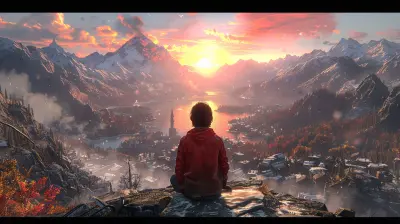
Why Open World Games Are So Popular With Teens

Early Access Darlings That Became Cult Classics

The Best Sports Games for Couch Co-op Matches
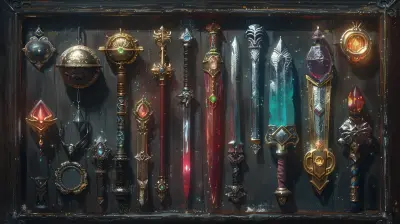
Fabled Treasures: Legendary Items Inspired by Real Myths

The History of Racing Games: From Pole Position to Gran Turismo

Must-Play Indie Games That Teens Will Love
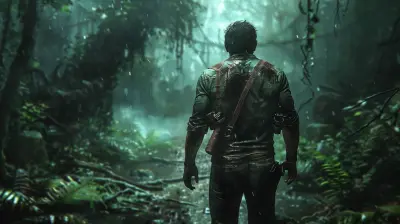
How Game Physics Revolutionized the Action Genre

Optimizing Your Xbox for Stunning 4K Gaming

Exploring the Hottest Trends in Gaming Soundtracks